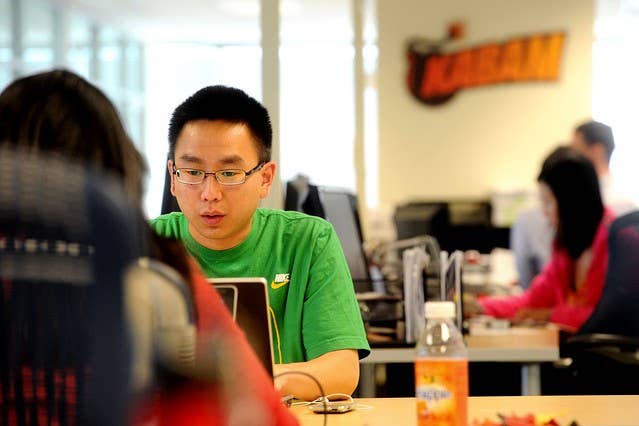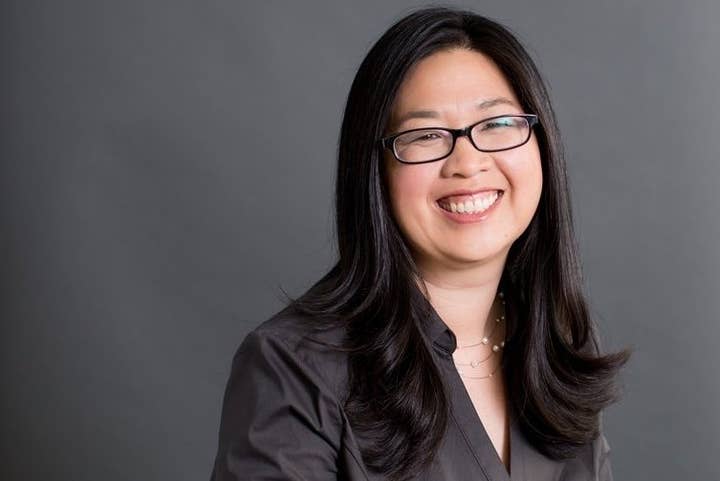The culture of Kabam
Co-founder and chief of staff Holly Liu on keeping staff sane
"Culture is that thing that's silent. You can't see it. You don't know what's going on, but it's like that fabric that holds everything together. It's the norms, the practices, the rituals. All that is birthed out of culture and it's something very powerful. I always say the thing you can't see is usually the thing that's most important. Like the structure of the building."
Kabam may have just received $120 million in investment from Alibaba Group for its hit mobile games, but it started out as a company building fan communities. It's changed a lot since those days back in 2006, but it's corporate culture has remained the same.
GamesIndustry.biz spoke to company co-founder and chief of staff Holly Liu about how it built and maintains that culture and the lessons learned along the way.
"I think it's actually very difficult for people just to whiteboard and talk about culture," says Liu.
"We spend much of our time talking not necessarily about the word culture, but about things that really affected it"
"It's like riding a bike. It's very difficult to read a book and say, 'Oh, I know how to ride a bike.' Versus like, you get on it and you try it out, figure out your balance, figure out what's your problem and what isn't your problem. And that really becomes the product culture, and it's more useful that way."
Liu joined Kabam from AOL where she was a senior user interface designer for AOL. She left to form Kabam in 2006 and now oversees a culture that includes 750 employees in across operations in the US, Vancouver, Canada, China, the UK, Korea, Luxembourg and Germany.
"It's really interesting because I think a lot of the reasons why we started the company, or even why I had left, it was due to cultural reasons in some ways. I wanted to get product out the door faster. At AOL, it was hard to get some products out the door.

"We knew that culture was important. We spend much of our time talking not necessarily about the word culture, but about things that really affected it. Even to this day, we spend more talking about not just culture in general. Because it's very hard. Other people think, if you say culture and I say culture, it's very different."
Now the company makes a point of trying to find a way to bring its teams, on over 14 projects around the world, together. Kabam uses events to both bring the company together and fight against burn out for its developers.
"Once a quarter we have what we call a Kabam Expo. It's kind of an internal games fair where people can go and play the games, give feedback, meet the game makers. It's really a fun time and really kind of celebrates those things. And that's probably one of the ways also to let loose with the employees as well, to help them stay a little sane.
"The Kabam Expo is one of the ways also to let loose with the employees as well, to help them stay a little sane"
"Some games teams have also done hackathons. They've done some bug stomping, where they focus on a couple bugs and really stamp them out. We've had some really creative stuff come out of the hackathons as well, particularly when it's centered around the game teams."
One of the hot topics in corporate culture at the moment is inclusivity, and that's something Kabam is also keen to address. They offer all new employees a rigorous "on-boarding" scheme and Liu explains that they're working on helping more females to find roles within the company.
"At Kabam, the last time I checked, the numbers were higher than the industry standard. It was about 23 per cent, industry standard is about 19 per cent," she says.
"We've been working on a Women At Kabam initiative, so we've gotten together once or twice in the past year or so to at least kind of see and talk and interact with one another, in some ways network. On the flip side, I think the most important thing to get is more women in leadership. The more women we can get at the table, the better. And that's really one of the things I continue to champion on the backend, making sure those things are there. I'm probably in one of the better positions to be able to try to make sure that gets represented."
Liu accepts that such changes are harder for larger companies with established cultures to affect, but also believes that even a single individual can have a positive role to play.
"I do believe you can come in and change things. At least you have control of your own actions, right? And you should be able to change and influence other people, which in turn influences the culture. And really can change the culture.
"In the end, it was just small, tiny little steps, but the whole mindset just shifted and the products were better for it. So I think anybody anywhere can do it. Maybe it's too optimistic. What does Gandhi say? Be the change that you seek."

